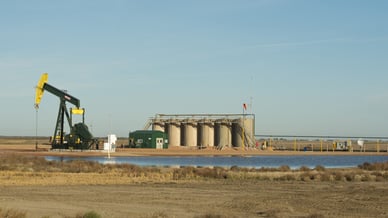 In the energy sector, the term “fracking” is a controversial one. The term typically refers to the shale gas boom, which uses high-pressure injections of water, sand, and chemicals into shale deposits to force the oil and natural gas in the rock out.
In the energy sector, the term “fracking” is a controversial one. The term typically refers to the shale gas boom, which uses high-pressure injections of water, sand, and chemicals into shale deposits to force the oil and natural gas in the rock out.
Many environmental groups are concerned with the potential impact of fracking on the environment. On the other hand, companies engaged in fracking practices on U.S. soil are being held to very tight regulatory standards, with many companies going above and beyond to limit environmental risks.
Right now, the practice of fracking is lowering the USA’s dependence on foreign oil, and helping to reduce energy costs within the U.S. Both of these impacts are generally good for the American economy, helping to keep energy investments and money circulating within the USA.
The question for manufacturers is, “what does fracking mean for U.S. manufacturing?”
Well, here are a few of the ways that fracking can affect manufacturing:
Reduced Energy Costs
One of the most obvious effects of having a surplus of oil and natural gas from fracking is that it reduces energy costs within the U.S.
For manufacturers, this helps to improve margins on manufactured goods by reducing operational costs. Many manufacturers face steep energy costs, and reducing that financial burden goes a long way towards making operating in the U.S. affordable.
In fact, research cited in a manufacturing.net article states that “the average cost to produce goods is currently only 5 percent higher in the U.S. than in China, and that the cost is expected to be 2 to 3 percent lower by 2018.”
Which brings us to our next point:
Increased Reshoring of Manufacturing Capacity
Most manufacturers want to make sure that they can minimize costs and maximize profits. This is one of the reasons why so many manufacturers offshored their production to developing countries in past decades.
The labor in these other countries was cheaper than labor in the U.S. at the time, so it made economic sense to these manufacturers to offshore production.
However, a combination of rising overseas costs, increased productivity of U.S. manufacturing workers using automated production tools, faster shipping cycles for domestic delivery, and reduced energy costs in the U.S. are enticing many manufacturers into bringing their production back to American shores.
As a result of increased reshoring, there are also…
More Manufacturing Jobs Being Created in the U.S.
 As manufacturers bring more production capacity back to American shores, they are also adding more jobs to the American economy.
As manufacturers bring more production capacity back to American shores, they are also adding more jobs to the American economy.
After all, even in heavily automated manufacturing processes, there still have to be machine operators to program the machines, perform maintenance, and oversee operations.
The best part? The vast majority of these jobs aren’t minimum wage. These are solid, middle-class jobs that allow Americans to support their families and save for the future.
More Investment in Manufacturing Infrastructure in the U.S.
Another benefit of moving more production capacity to the U.S. is that it also means that companies are investing in U.S. production facilities and infrastructure.
When a U.S. manufacturer starts a factory expansion, it’s a U.S. company that gets the building contract, American workers who get paid to make the expansion, and American property taxes that are getting assessed to support American state and federal infrastructure.
This helps to create more jobs that support the manufacturing industry, and further grow both the American tax base and the consumer base for many other American businesses.
Overall, the impact of fracking on the manufacturing industry is overwhelmingly positive, creating opportunities for more investments in American business and job growth. Over time, fracking’s beneficial impact on the American manufacturing industry may help to strengthen the middle class and bring about the American manufacturing renaissance.
See how Marlin’s growing the middle class by checking out our careers page.


.gif)


